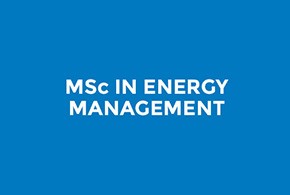| |
| |
|
Editorial
May we take this opportunity to wish you a very happy Christmas and prosperous 2025!
We're delighted to share that for the third consecutive year, ESCP Business School is ranked among the top 5 business schools in Europe according to the 2024 Financial Times ranking. Earning 5th place out of the top 100 schools ranked, ESCP reaffirms its standing as a European and global leader for excellence in business education. More information is available here.
Upcoming Event:
Invited talk on "How windy is Europe's windiest country in reality?" is taking place on 29th January with Michael Jefferson, EMC Advisory Board Member, and International Advisory Board Member of the Energy Policy journal. Registration will open soon. Stay tuned!
Research:
In case you missed it, you can find below the recent research by our EMC Experts and MSc in Energy Management students on energy poverty, carbon markets, climate change, and other relevant topics.
Energy Programmes at ESCP:
Admission process for the 2025 intake of our MSc in Energy Management (MEM) is open. To find out more about the specialisation, please click here.
Our new Executive Master in Future Energy is accepting applications for the February 2025 intake. For more information on the programme, please click here.
Finally, to keep up-to-date on all activities at the Centre, we invite you to join our LinkedIn group, Energy Management @ ESCP Business School.
|
| |
|
| |
|
Events
|

|
EMC Invited Talk Series
29th January at 18:00
|
Online
How windy is Europe’s windiest country in reality?
Speaker: Michael Jefferson, EMC Advisory Board Member, and International Advisory Board Member of the Energy Policy journal
The talk looks closely at the performance of wind energy developments, particularly onshore in the UK and over the past 15 years, and concludes that given the strength of annual mean average wind flows over the UK (especially over Scotland), the performance has been disappointing. For example, in terms of annualised load factors nearly 46% have recently been underperforming according to one of the basic criteria long applied by the industry itself. Explanations are given as to why this is the case along with suggestions for improvement.
The webinar will take place on Zoom at 6 pm GMT on Wednesday, 29th January.
|
|
Energy Programmes
|

London - Paris - Internship
|
|

|
|
|
|
|
Our Mission
|

|
|
The EMC Advisory Board
|

The EMC Advisory Board is comprised of top energy experts from the world's industry leaders in both the public and private sectors.
- They advise the EMC in several different areas: The curricula of the MSc in Energy Management, ensuring both programmes meet the needs of participants on academic and professional levels.
- Research that makes a significant impact on best business practices.
- Current and future activities which benefit the EMC's partners, affiliates, students and alumni.
|
|
Latest News
|
Friday, December 6, 2024
ESCP Business School and its Energy Management Centre (EMC) are delighted to announce the appointment of the new Energy Society board members for the 2024–2025 term. Elected by the dynamic twelfth cohort of MSc in Energy Management students, this talented team is ready to lead an engaging and impactful ...
|
|
|
Research
|
Published Papers
Highlights
• Evaluating energy poverty across a sample of 32 economies from 2004 to 2021.
• Data from the EU-SILC database and Eurostat were utilised.
• Fixed-effect regression models were used to identify factors influencing energy poverty at the household level.
• Strategies for addressing energy poverty include enhancing housing conditions and lowering electricity expenses.
• Households that are low-income, smaller in size, and in poor condition are more vulnerable to energy poverty.
|
Georgia Makridou, Ken’ichi Matsumoto, Michalis Doumpos
|
READ MORE
|
EMC Working Papers
Driving the Paris Agreement
Article 6 of the Paris Agreement includes provisions allowing countries to cooperate to achieve National Determined Contributions (NDCs), specifically through carbon pricing, to meet mitigation commitments. Carbon markets are an emerging tool that incentivises businesses to pollute less and invest in clean technologies by putting a price on carbon emissions. As this article explores further, compliance and voluntary carbon markets are poised to reshape the energy landscape and contribute to achieving the ambitious goals of the Paris Agreement.
Compliance Carbon Markets
Compliance carbon markets are a key tool in the fight against climate change, and they aim to establish a carbon price by laws or regulations which control the supply of allowances distributed by national, regional and global regimes through the following compliance mechanisms: (1) Cap and Trade: Sets a pollution limit (the cap) and lets companies buy or sell allowances to meet their obligations, creating a market for carbon credits with a price driven by supply and demand; (2) Carbon Tax: A fixed price is set per ton of carbon emitted. Companies must pay tax for their emissions, incentivising them to reduce pollution.
|
|
EMC Working Papers
Are We Creating a Compromise?
Every year in the United Kingdom and Australia, thousands of incidents involving devastating fires linked to batteries in waste management facilities or vehicles are reported. Paradoxically, these are facilities meant to contain such hazardous activities. Furthermore, headlines such as “Batteries Starting Fires at Yellowknife’s Landfill, City Says,” posted by Cabin Radio, report unreported hazardous incidents potentially linked to batteries, and are becoming more common around the globe. These reports and news are increasingly alarming because they come at the cost of life, property damage, and monetary losses, and given the fact that we heavily rely on batteries for the energy transition, they could lead to safety and environmental compromises if not treated properly.
EMC Working Papers
The Intersection of Neurochemistry and Environmental Cognition in Climate Change
Let me introduce you to the concept of relativity, particularly relative status. Why can we not stop consuming? A first hint is the very nature of human survival and social structures. Within these social structures, hierarchy and hence status is particularly important. However, we have not evolved to have an absolute criterion for reaching a certain status, as it wouldn’t be viable on largely different scales. That is why we rely on relative status. As you may already know, our brain relies on neurotransmitters to carry electrical signals from one neuron to the next.
|
|
|
| |
|



















